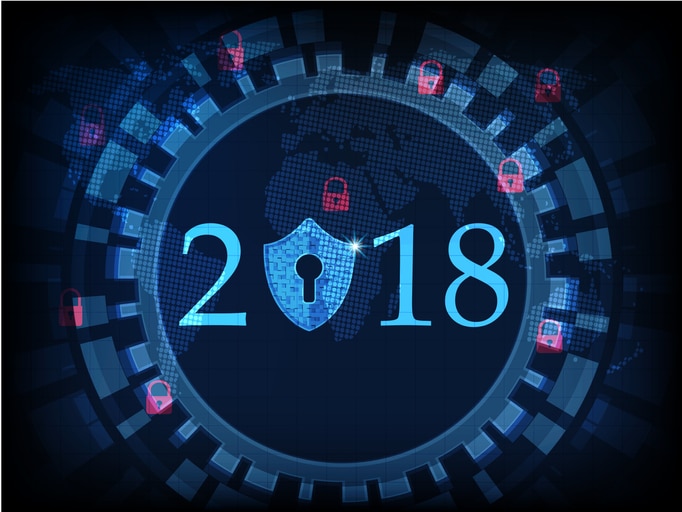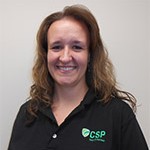1310 Nowell Road
Raleigh, NC 27607
1310 Nowell Road
Raleigh, NC 27607
Existing CSP Client: (919) 424-2060
SALES: (919) 420-3231


The past few years have revealed trends that show us cybercrime won’t just go away. The following stats put the breadth of the threat into perspective:
With technology continuing to advance in favor of cybercrime, 2019 is likely to see its share of hacking headlines. The Cyber Security Breaches Survey revealed that 43 percent of businesses experienced some kind of cybersecurity breach in 2018. California alone lost $214 million to cybercriminals.
VPNs are one way people try to protect their online privacy, but user behavior continues to counteract the best firewalls and security strategies. For example, despite knowing the risks of clicking an unknown link or email, many people do so anyway.
The cybercrime economy mimics the global economy’s shift towards a platform model. This mirrors the legitimate shift to social media, Amazon and Google. Platforms connect retailers and consumers and give people a place to interact in other ways. Unfortunately, this has given unscrupulous people an opportunity to get to know how these systems work and use that knowledge to commit cybercrimes.
Hackers love Microsoft Office file extensions. They know people trust them and are more likely to click on them. Emails are the most common way that cybercriminals defraud their victims, and they do so by sending files with familiar extensions to mask malware and spyware. People use emails every day for all kinds of communications, including very sensitive information. Unfortunately, it’s relatively easy for bad actors to send you an email that opens you up to viruses, identity theft and other risks.
Some hackers aren’t interested in your personal information or causing havoc with your sensitive files. Believe it or not, some cyber criminals break into your computer to steal your computing power. They may use these unauthorized resources to mine cryptocurrencies, for example.
One of the latest threats involves the use of your computer or other devices for bitcoin mining. Symantec has reported an increase of 8,500 percent in the number of people caught coin-mining. This indicates that there are hackers dedicated to accessing and using a victim’s computer resources in lieu of stealing personal data.
The short answer to this is that an individual with the right skills can earn far more via cybercrime than most legitimate lines of work. Individuals can earn about half a million dollar a year by selling stolen data. There are several levels involved, however. Low-level hackers may be happy with petty crimes that put extra cash in their pocket. Highly specialized hackers can make millions working alone or as a team. Generally, though, hackers make about 15 percent more than those in traditional crime brackets. High earners bring home about$167,000 a month, mid-level earners rake in $75,000 a month and at the low end of the spectrum, petty cybercriminals make $3,500 a month. For instance, someone managing multiple card data forums can bring in millions each month.
Just turn on the news any given night and you can find stories on data breaches, the bread and butter of cyber thieves. Personal data can be sold as is or used to created bank accounts and apply for credit cards, which are sold for small or large fortunes. Theft isn’t the only crime possible. Major platforms are targeted for the myriad of data they collect. Even Facebook is not immune. It was in the news for a significant data leak in 2018. Yahoo also had a major breach that compromised 3 billion user profiles. Cybercriminals aren’t shy about going after these giants, so it’s up to you to increase your vigilance at home and at the office.
Smart home devices usually connect to your home network from an outside network. If your router is adequated protected, you’re opening the front door of your home for cybercriminals. With smart home devices becoming more common, savvy criminals are learning to take advantage of their vulnerabilities.

Always at your service to provide the highest level of quality support to our customers.

Anthony Firth Client Engineer

“I’m passionate about building and fostering relationships, and finding solutions for success.”

Michael Koenig Client Account Manager

“I help clients stabilize and grow their IT infrastructure so they can focus on growing their core business.”

Josh Wilshire Systems Engineer Team Lead

“I strive to provide the highest level of quality service to our customers.”

Tommy Williams Sr. Hardware Engineer

“I’m driven by the steadfast belief that technology must serve as a business enabler. This mantra has driven 21
Years of successful partnerships.”

Stephen Riddick VP Sales & Marketing

“CSP doesn’t succeed unless your company succeeds.”

Stephen Allen Inventory Manager

“Through my intuition and genuine concern to help others I have built long-lasting relationships with our customers, co-workers and business partners.”

Scott Forbes VP Support Services

“Every day, I work with clients to help plan the future of their businesses.”

Michael Bowman vCIO

“Your IT problems become our IT solutions.”

Mark McLemore Project Engineer

“Managing internal and external operations to ensure that CSP provides quality and reliable customer service .”

Margie Figueroa Business Manager

“Providing quality internal and externals financial support to our customers and accounting support to CSP.”

Katie Steiglitz Accounting Administrator

“Some call me the CEO. I call myself the Cheerleader for an awesome team!”

William B. Riddick Founder & CEO

“CSP is here to assist you with your IT needs.”

Beth Wylie Inside Sales Manager




On What Questions You Need To Ask Before Signing Any Agreement.
"*" indicates required fields

Raleigh IT Support Company and IT Services Provider | CSP Inc.
1310 Nowell Rd,
Raleigh, NC 27607
Existing CSP Client: (919) 424-2060
SALES: (919) 420-3231
Receive email updates and informative marketing materials by subscribing to our newsletter.
"*" indicates required fields